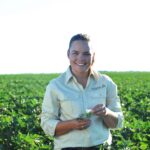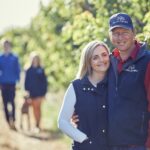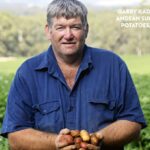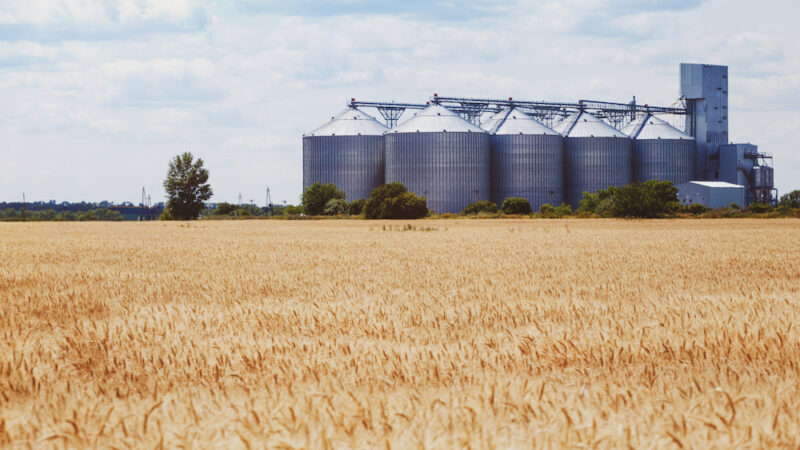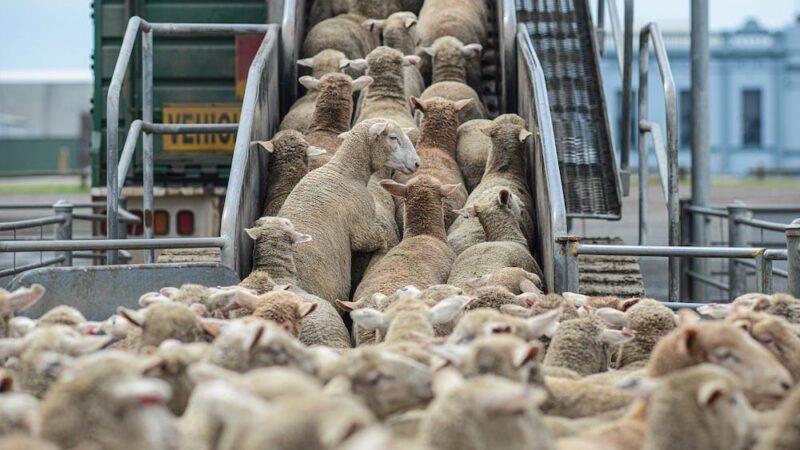NSW farmer, Emma Ayliffe, lives by the mantra of "stop thinking and start doing" and…
NSW home to Australian Farmer of the Year
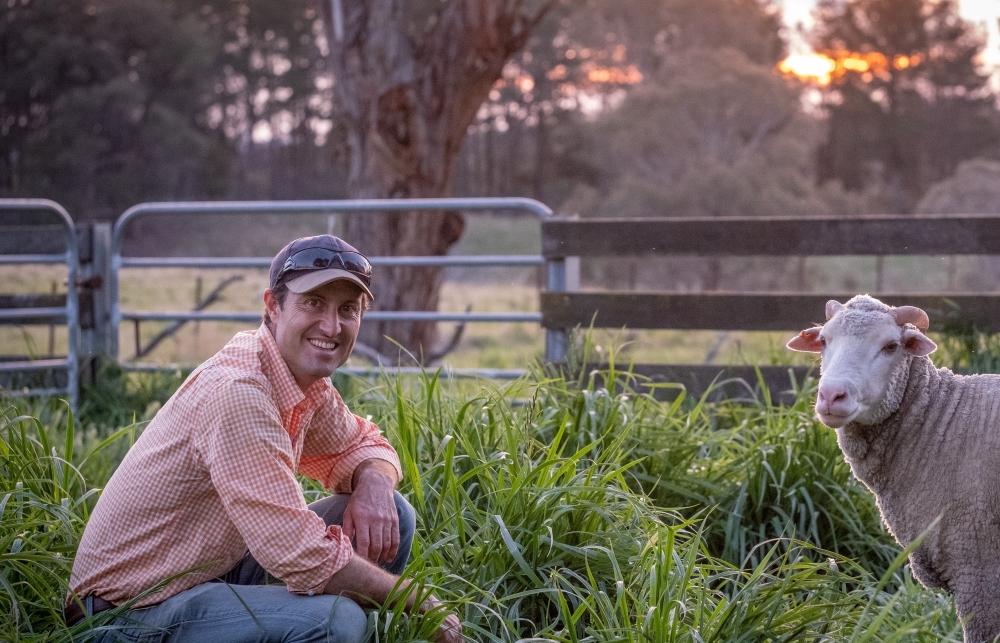
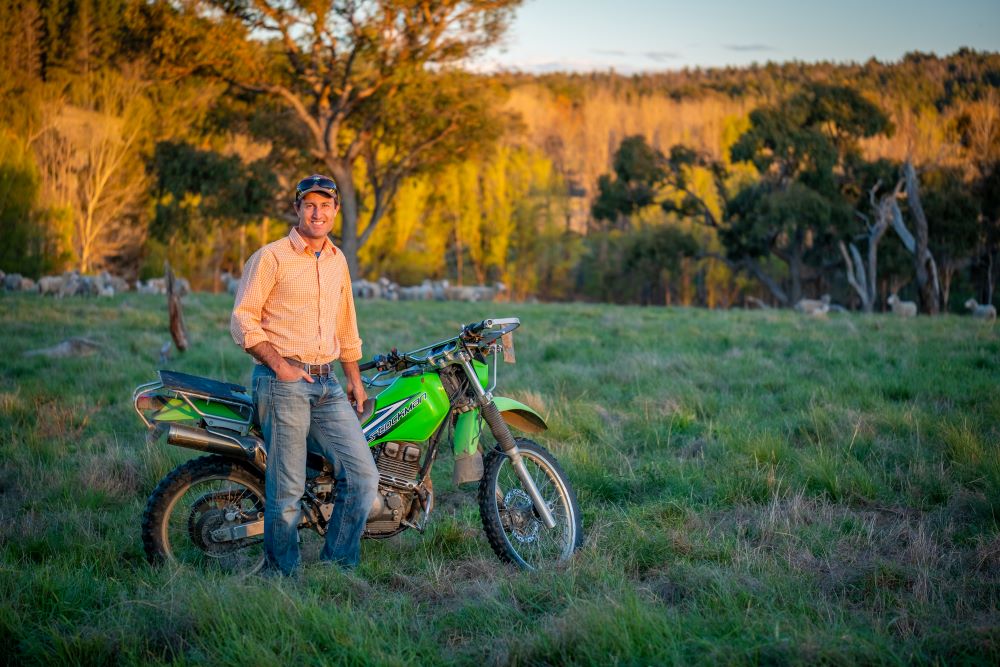
Michael Taylor’s new Australian Farmer of the Year title was announced in Canberra last week at the Kondinin Group and ABC Rural 2022 Farmer of the Year Awards.
His family�s historic farm, Taylors run, is home for a flock of superfine merino sheep, a mixed Angus cattle herd, a timber mill, and farm stay accommodation
It is also home for the sixth generation farmer and his family � wife Milly and children Remy, Lydie and Nina.
Michael’s nomination for the award stemmed from his reputation for a future-focused approach to sustainable farming, agroforestry and value-adding.
�I did not even know I was nominated for the award. There are so many farmers out there doing good things, so it really is a privilege to be involved,� Michael said.
Taylors Run is spread across 610 hectares near Kentucky in the New England region. His sister Kath and husband Hamish Caddy farm on a separate nearby property also once owned by Michael�s parents John and Vicki.
�I am also currently leasing another 700 acres from my uncle. We did buy another 200 acres during the drought in 2019 and it was literally a block of dirt. There was not a blade of grass on it. It was a risk at the time, but it has recovered well.�
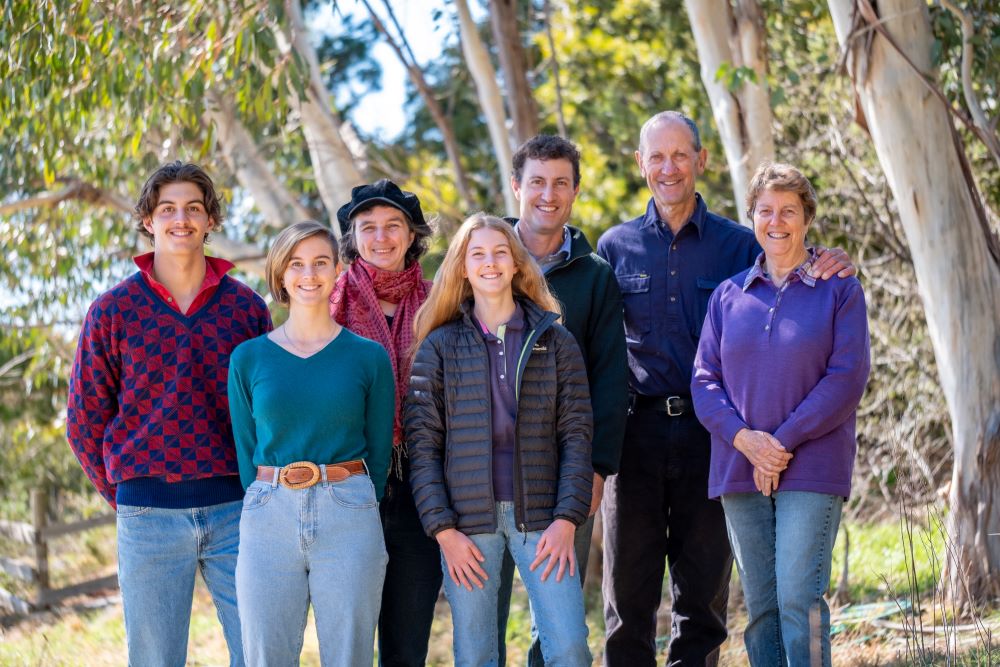
Through tree planting and rotational grazing, Michael has increased stocking capacity, lambing percentages, reduced degradation, and sequestered carbon for the future.
“My family has been farming in the New England region of NSW for more than 180 years, and I would like to see them still farming this area for centuries to come.�
Australian Farmer of the Year Michael Taylor
�My ancestors were always looking for new ways of doing things. We�ve continued getting stuck into adopting sustainable farming practices.�
I have followed in my parent’s footsteps of caring for our land with regenerative goals and showing how you can integrate both a successful grazing enterprise and an agroforestry program.”
We aim for five DSE (Dry Sheep Equivalent) per hectare, which is not high. We are making a comfortable profit at that level, while improving the farm�s environmental health.
�Regenerative farmers is a new label for us. The best thing that has come out of the regenerative ag buzz is a deeper discussion about what sustainable ag means. Sustainable ag is good agriculture. It�s more about what we need to take out rather than how much we can take off the land.�
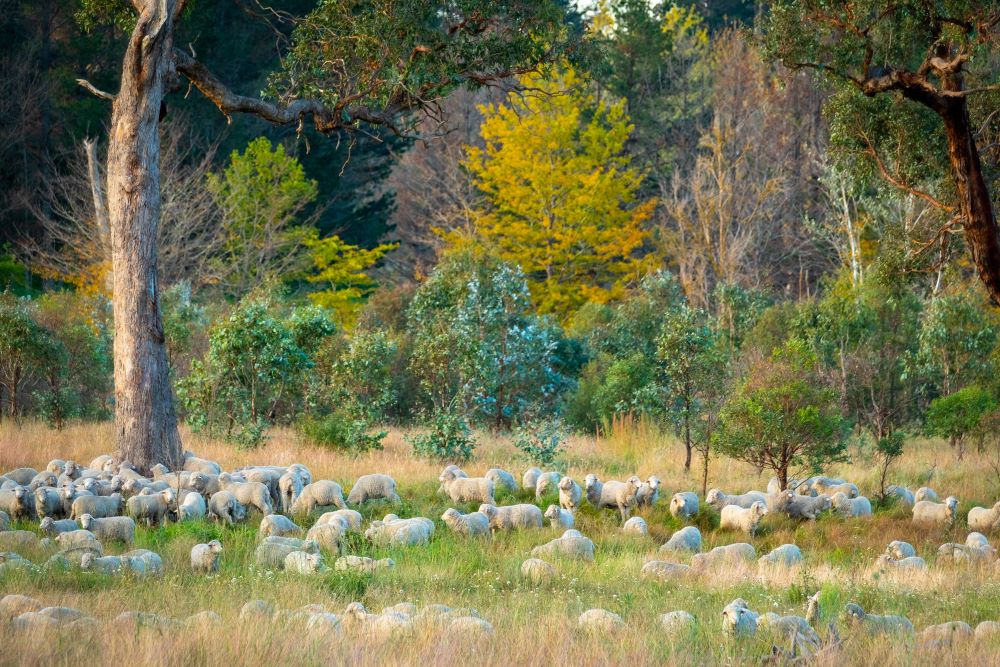
Michael is an active member in the wool industry, supporting grower groups such as Tablelands Merino and as a founding member and director of Australian Ethical Merino Growers Co-operative.
Both grower groups, and the family’s ongoing close relationship with Italian wool processors such as GS Schneider and Reda, demonstrate Michael’s commitment to bridging the gap between growers and customers through education and traceability.
Recently he collaborated with Haute Couture designer Sofia Crociani and also local Australian brand Simple Chic, on separate projects to tell the story of sustainable wool growing.
�Our main market is the Italians looking for the high curvature wools that we produce. In terms of wool production, we are quite small, so it is important to work directly with our Italian processors. I would like to see more value adding of wool done here is Australia.�
Ben White, General Manager of Research at Kondinin Group, said Michael’s ability to run numerous enterprises in synergy, while keeping the care of his land at the forefront, is highly commendable.
�The diversification strategy Michael oversees on his multi-generational farming enterprise, and the success he is having adopting innovative practices, is remarkable,� Ben said.
�He deserves recognition for how the operation is working in synergy in the present, with clear and motivated acknowledgement of the future needs of the industry.�
Building a farming future with timber
Agroforestry has contributed significantly to supporting Michael’s aim to run a sustainable and regenerative enterprise.
His network and knowledge of agroforestry has been recognised nationally through awards and presentations, but most importantly as a local mentor for other farmers wanting to manage trees on their farms.
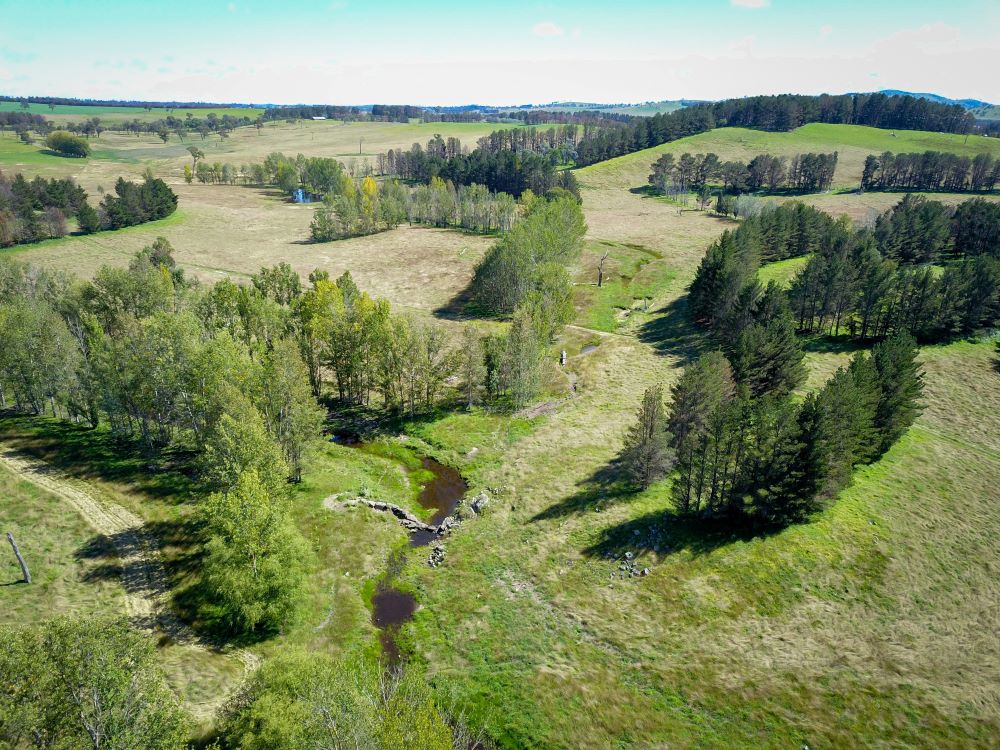
He is as an active member of his local Landcare group and also as a director for Southern New England Landcare.
�Pursuing sustainable practices has been a focus of ours since the early 1980s. We manage 180 hectares of Radiata Pine and other mixed species, which we can mill on-site. We replenish what we harvest and are keen to share the importance of integrating agroforestry into modern farming operations.�
Last year, Michael partnered with Southern New England Landcare to co-host an event focused on the concept of silvopasture – where trees and shrubs are incorporated into pastures for forage and grazing purposes.
�We are harvesting pine this year that was planted by my father. Its 35 to 40 years old. We�ve been planting more pine ever since then, some of which is 400 millimetres in diameter at just 14 years of age.�
Michael said the mobile Mahoe timber mill provides a profitable value adding opportunity.
�There is a lot of demand for timber, but the prices for logs has not really increased,� he says. �The sawn timber we mill on farm has though. Selling a few cubic metres of sawn timber is equivalent in profit to a full truckload of logs. But the timber was a valuable source of income during the drought when there was no water and virtually no stock.�
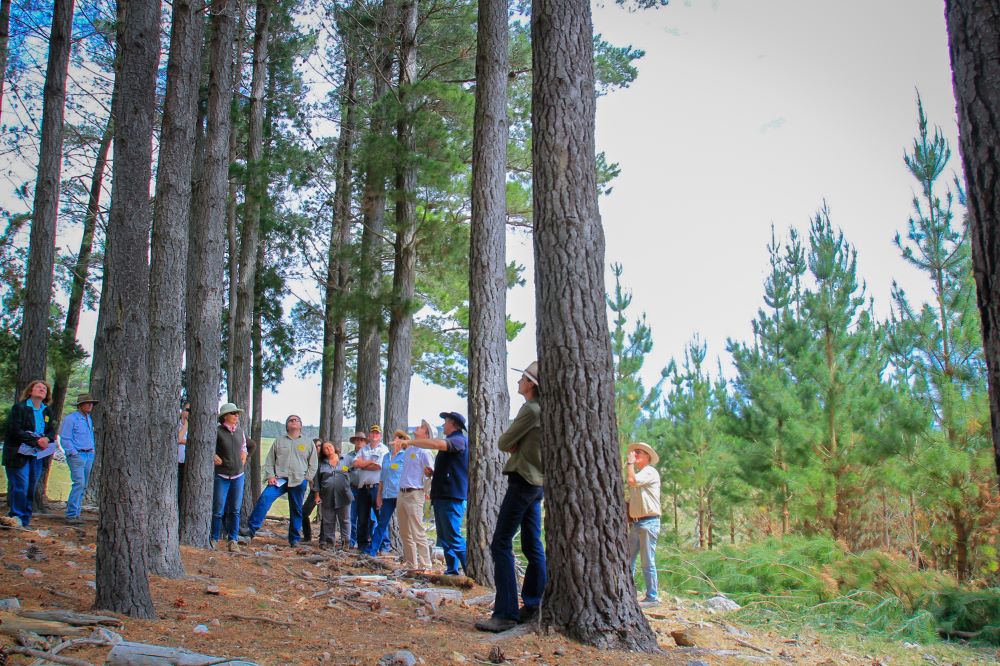
Michael said the tree plantings provide much more than income and drought resilience.
�I�ve found that we have increased pasture production with the tree shelters,� he says. �The trees are fully integrated with the grazing operation. Once the trees are established after three to five years, those areas are subject to the same rotational grazing as other areas.
�There is also plenty of scientific literature out there on the benefits of having trees for mental wellbeing.�
Richard Wright’s legacy is legendary
Former NSW Farmers Vice President and cattleman, Richard Wright, was named Farming Legend of the Year at the Kondinin Group and ABC Rural 2022 Australian Farmer of the Year Awards.
The �Legendary� call was granted due to Richard�s integral role in the development of the Australian cattle industry.
The Wright family-owned Jeogla Station in the northern tablelands of NSW, approximately 50 kilometres east of Armidale, from 1902 to 1998. Richard managed the 5650 hectare station for 30 years before it was sold.
During his time at Jeogla, Richard was involved in many initiatives. During 1984 Jeogla launched the first on-site physical cattle sale coupled with simultaneous video presentation in four states. Further innovation after this resulted in the Computer Aided Livestock Marketing (CALM) system.
“CALM was born out of the need to minimise costs and maximise returns, but it struggled to maintain full industry support,� Richard said.
The catalyst that confirmed its future was the interface linkage with a live sale on Jeogla including comprehensive, accurate descriptions of the livestock in the saleyard setting thereby cementing the future of what is now known as Auctions Plus.
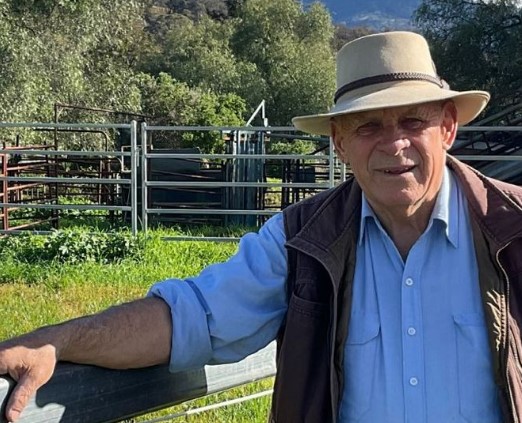
“There are many cattle producers who remember being gathered around a computer screen interacting in sales around the country � an absolute game changer back in the 1980s!” Richard says.
Jeogla was also one of the first properties in Australia to take up �Cattlecare’ � an on-farm quality assurance program developed to ensure domestic and export processors’ and consumers’ continuing confidence in Australia’s beef quality and safety.
Richard was the inaugural chairman of the quality assurance concept, and Jeogla was also the first cattle property to adopt the International ISO accreditation.
Despite being officially semi-retired, Richard still runs some trading cattle on a small farm in the Upper Hunter Valley and has helped establish a rural skills training course for indigenous Australians at Trelawney in Tamworth, NSW.
“Every day, things are changing and moving in our industry, and we have to adapt and progress with it, or risk being left behind,” he says. “We produce the best cattle in the world, and I am proud to have played a part in that heritage, and continue to play one in our future too.”
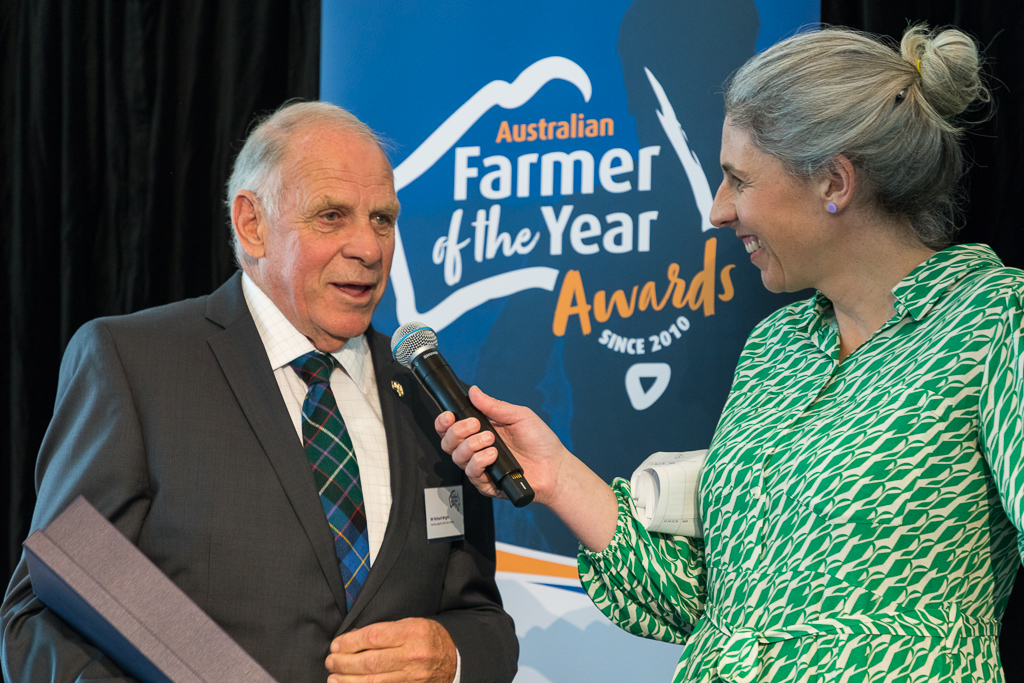
Kondinin Group�s Ben White said Richard was a pioneer with an innovative outlook, and a strong desire to share his experience and learnings with those around him.
“Richard has taken on leadership roles within industry, including at NSW Farmers, National Farmers’ Federation and the Cattle Council of Australia.�
He helped establish what is now known as Auctions Plus, conducted the first trials on controlled oestrus (the forerunner to prostaglandin), discovered the critical necessity for selenium as a key trace element on the tablelands, learned how to pregnancy test cattle and has since taught many producers the skill, and was instrumental in importing �Simmental’ blood into traditional Hereford cattle thereby increasing carcass yields by 20 per cent,” Ben said. “His legacy is legendary.”
If you enjoyed reading about these farming families, meet the Fenech family from Sydney.


